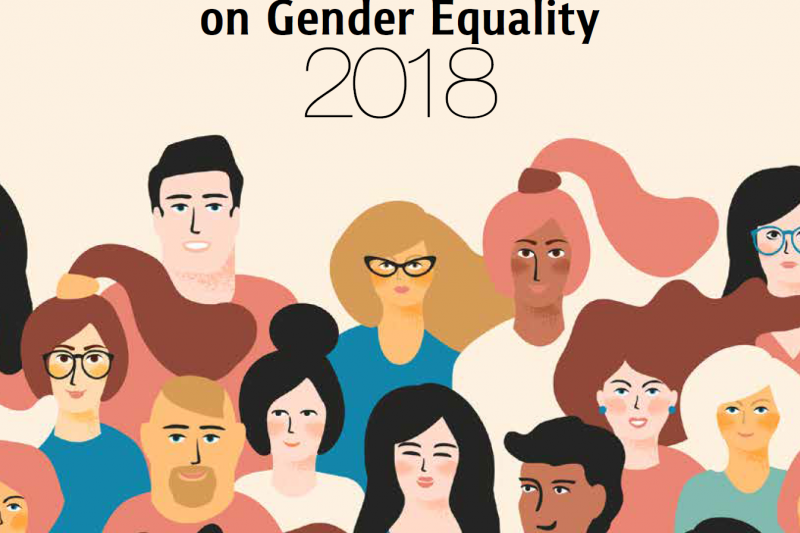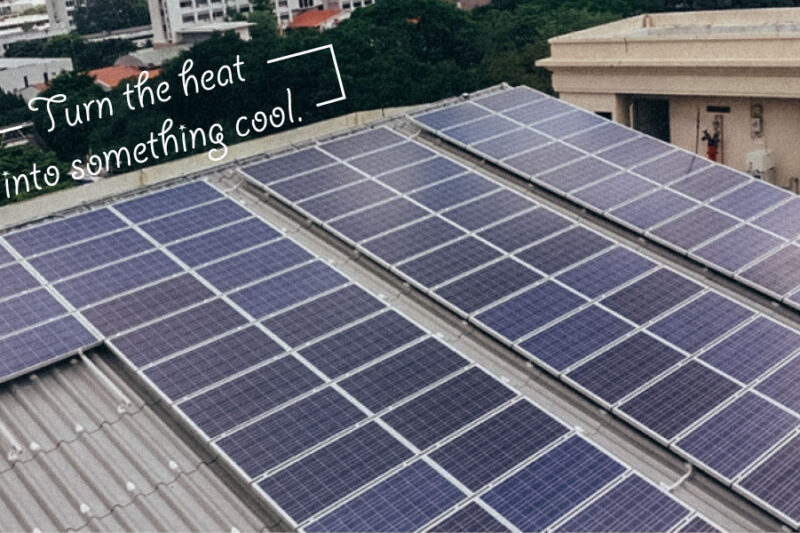Implementation of sustainability policy by outsourced food / beverage services at Chulalongkorn University
In enacting the policies detailed in the Chulalongkorn University announcement on waste and hazardous waste management policy BE 2560 (2017) [ http://www.sustainability.chula.ac.th/rule-regulation/366/ ] and Chulalongkorn University announcement on Measures to Reduce Single-Use Plastic Waste BE 2561 (2018) [http://www.sustainability.chula.ac.th/rule-regulation/360/ ], the university has expanded implementation of its waste management policy to cover outsourced food and beverage service outlets in the university canteens. Food outlets are contractually obliged to follow waste management policies and procedures in line with the Chula Zero Waste scheme, whose goal is to reduce waste, promote waste separation and reuse and instill a spirit of sustainable consumption among university students, faculty and other personnel.
As part of their contract, outsourced food and beverage outlets are required to implement policies and procedures for waste management and sustainable consumption on campus. Examples include:
- Outlets must cooperate with the Chula Zero Waste scheme by separating food scraps, general waste and so on, as well as clean the waste storage area daily.
- Outlets must only use seasonings, ingredients, drinks and desserts approved by the Thai Food and Drug Administration (FDA) of the Ministry of Public Health, the Thai Industrial Standards Institute (TISI) or other regulatory body authorized to approve Thai food safety.
- Outlets must cooperate with the Chulalongkorn University canteen food safety scheme (not reusing frying oil and observing food hygiene). If the canteen management committee finds that an outlet has failed to follow these procedures, it is entitled to terminate the outlet contract immediately.
- Outlet managers and staff must attend Chulalongkorn University food hygiene training.
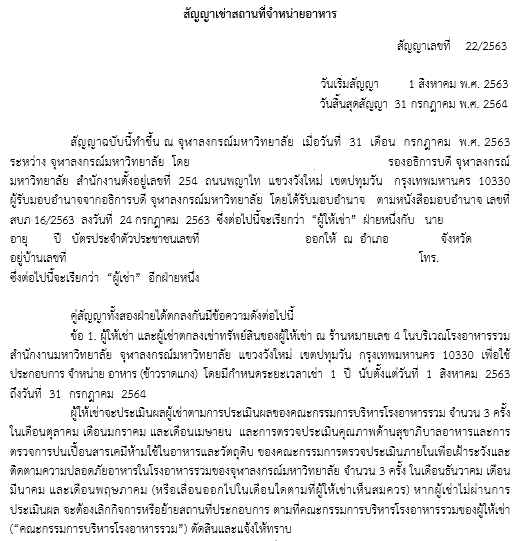
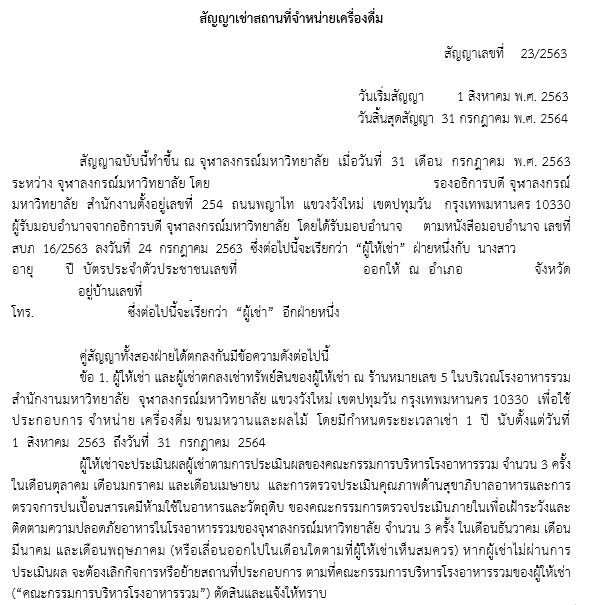
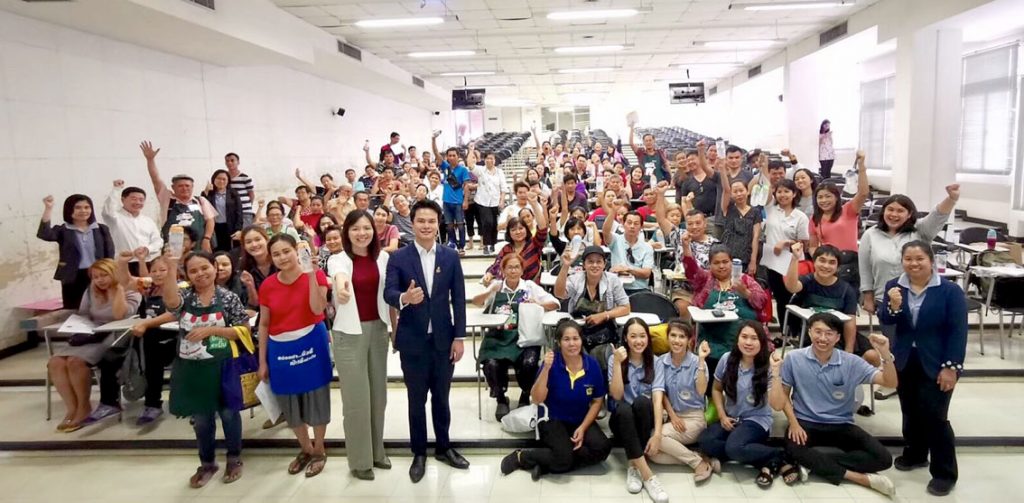
In addition the Chula Zero Waste scheme holds an annual meeting of outsourced canteen outlets to inform outlet staff of policies, procedures and the university canteen waste management system. The meeting also serves as a platform for outlet staff to discuss obstacles to their work and find solutions to these problems together. Meetings have been held every year since 2017. These meetings, alongside working in continuous partnership with outlet staff, has fostered engagement and cooperation between the university and food / beverage service providers, leading to effective waste management implementation as follows:
- Separation of food and organic waste from food preparation. Food and organic waste is processed in a bio-digester to produce compost and EM-containing bio-fermented liquid. These go to nourish the plants in the university’s green spaces. In 2020, 92.3 metric tons of food and organic waste was collected, which produced 7.6 metric tons of compost and 37,000 liters of bio-fermented liquid.
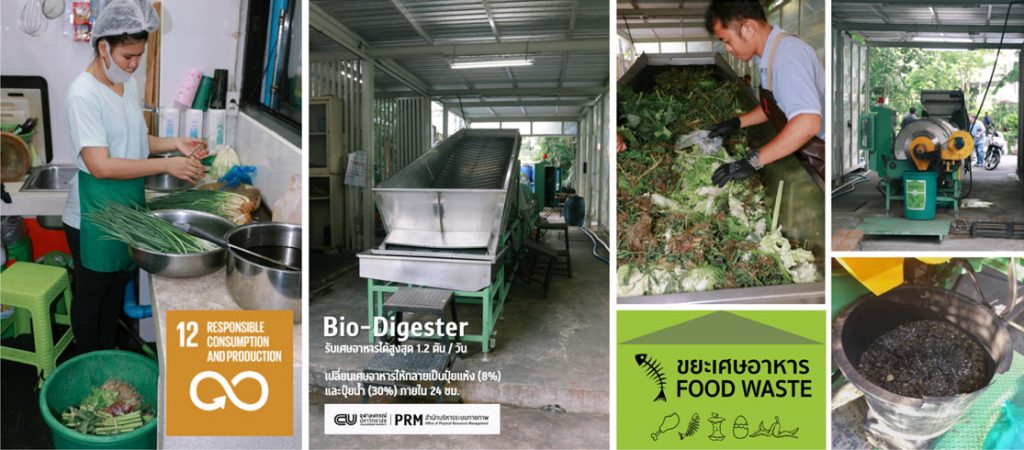
- Reduction of use of single-use plastics in the canteens, not providing free plastic bags for takeout orders, and only providing plastic cutlery or straws if requested by service users.
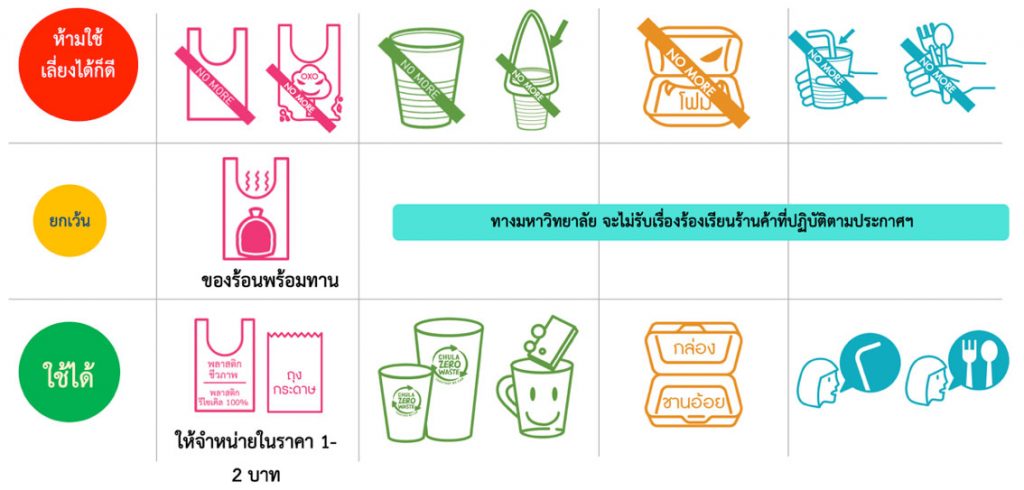
- Stopping usage of plastic cups in the canteens, instead using biodegradable Zero Waste Cups, and using a closed-loop waste management system. This involves having a specially designated Zero Waste Cup bin so that the contents can be processed into compost. The cups can also be used as nursery pots (replacing plastic bags) before planting them in the soil, with no need to remove the plant from the biodegradable cup.
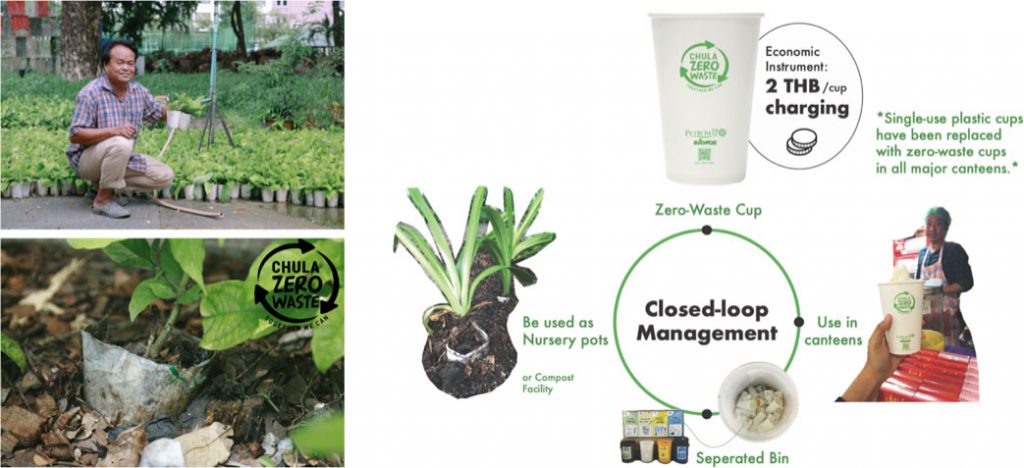
Food and beverage service providers also record quantities of different categories of waste produced by their outlets and offer discounts to service users who provide their own containers or cups to the canteens. This practice helps drive an ‘eco lifestyle’ on campus.
BY
Environmental Research Institute, Chulalongkorn University
Office of Physical Resources Management, Chulalongkorn University
Related articles:
Others
Commencement Ceremony and Gender Identity
Transgender Dentistry Graduate Overjoyed – “Mister’” Wasn’t Pronounced at Commencement Ceremony


